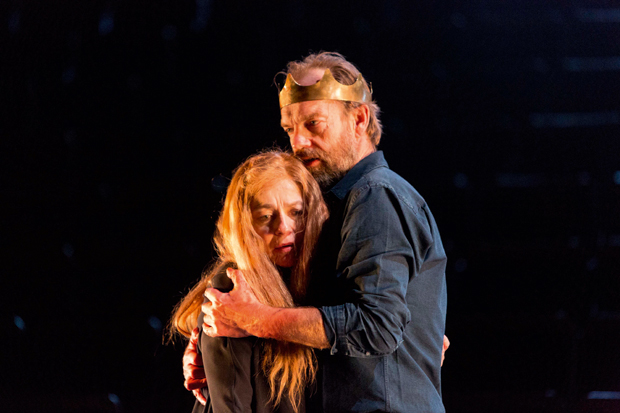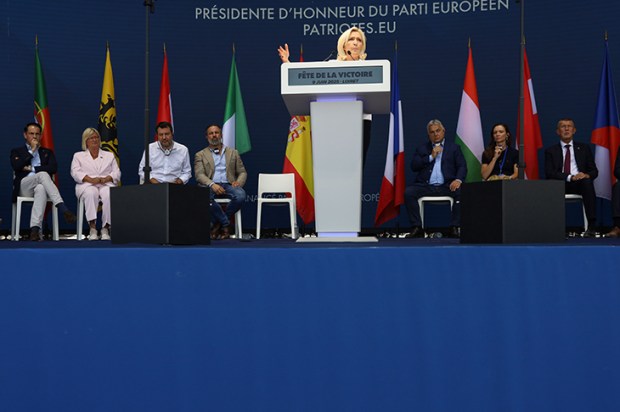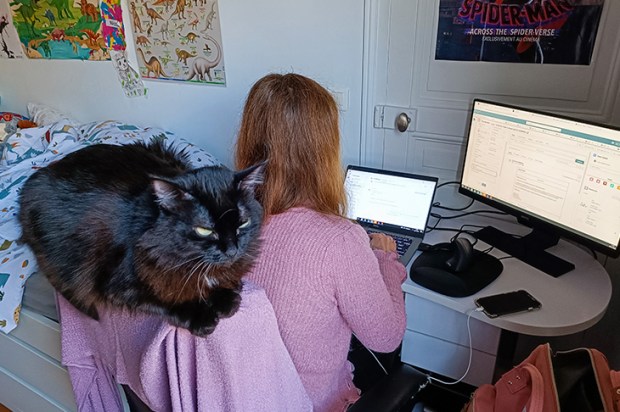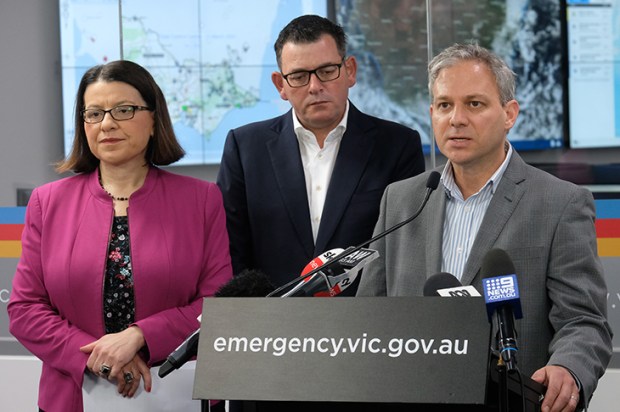Everyone can quote Winston Churchill’s (somewhat disputed) zinger to the effect that while he would be sober in the morning, his chastiser would still be ugly, but I prefer another tale from the same terrain: that of the Temperance League lady who told the Prime Minister he had consumed, during his tenure, enough alcohol to half fill the church hall in which they stood. Churchill gazed at the metaphorically unfilled expanse and observed, ‘So little time, so much to do.’
I prefer it because he was talking the piss out of himself, making fun of his own legendary fondness for, well, the piss. This is satire directed at the self, in which Australians have had a confounding crash course over the past week courtesy of a new book by former foreign minister Bob Carr.
Coincidentally (or not), Carr’s game-changing Diary of a Foreign Minister opens, on 9 April 2012, with a reference to the only former national leader to win the Nobel Prize in Literature (though when it comes to dedicated drinkers, he was hardly first to the Swedish punchbowl).
‘OK,’ Carr writes, ‘in my next life I return as a bon vivant, gourmet and imbiber… Buoyed through the day with heavily watered whisky and a pint of champagne, in the Churchillian manner. Getting off a train or plane, exhaling fumes of Pol Roger, waving around a cigar dunked in cognac… Flushed and merry.’
The new foreign minister is on a Qantas flight from Sydney to New York, where his first task will be to lobby (successfully, it should be noted) for an Australian seat on the UN Security Council. But abstemious Carr is never going to pop too much Pol Roger, so he must exploit other avenues of self-caricature… hence this diary of Australia’s chief diplomat has 36 entries for ‘fitness regime’, five more than there are for ‘Barack Obama’ and six times that of ‘Vladimir Putin’, a Crimean shame in retrospect.
Though Kate Moss doesn’t get a mention (Helen Mirren, more highbrow, gets two), the British supermodel’s view that ‘nothing tastes as good as skinny feels’ seems not out of place here. Carr’s unflinching documentation of his pursuit of abs — and oats — of steel proved the equivalent of a Big Mac Happy Meal for the tabloids — easy and cheap — as were his various laments about long-haul air travel (which everyone else in Australia loves).
‘First class tosser’ was the verdict, accompanied by digitally altered photos of Carr in airline pyjamas, dreaming about Wagner. But was such cyberfuge necessary? I’m sure he would have slipped into an Hermès thong and posed for the cameras if asked. The day the story broke I asked a seasoned publisher what the book might have been expected to sell in ordinary circumstances. Five thousand or so was the answer. And now? ‘Oh, 25,000-30,000.’
Yet Carr has some serious things to say, too, which heightens the confusion. So it was that on the same day he was being exposed as a tosser in some journals, others were reporting his contentious views on the influence of the Israel lobby in Australian decision-making about the stalled Middle East peace process. That disparity says less about the media than it does about Carr’s refusal to be pegged. Bob Ellis, friend and comrade, nailed in it a piece for the Age as long ago as 1999: ‘He reveals much to us others, in selective flashes of lightning, but not all. He does his nightclub acts, the devilish mimicry, the delightful spontaneous self-mocking heroic soliloquies. But we do not know him.’
In a culture that encourages the rush to judgment, such a personality can be a bit overwhelming. Federal Labor MP Michael Danby accused Carr of bigotry, which was a bit rough on a bloke who just wanted his Siegfried subtitled. Even harsher was the letter writer to the Sydney Morning Herald who expressed derision that such a ‘paradigm of culture’ needed sub-titles in the first place.
Carr has written a paragon-rattling political memoir, one that embraces the possibility — perhaps even demands the need — for self-parody in Australian political life. For that reason (and, yes, because of those tosser headlines) it will be read by people with little interest in politics, though their interest may grow with the reading.
There is much to enjoy in this diary, but my favourite bit, today at least, is the entry for Sunday 10 March 2013, the day after state elections in Western Australia, where the opposition Labor party went backwards, big time. It was as Carr puts it a ‘wipeout’ for his party. Carr is not enduring business-class cuisine but is at home in Sydney. So what does one of Labor’s most successful sons do? Make some commiserating yet encouraging phone calls to the fallen and the still standing? Send a few all-is-not-lost emails? Jot down some notes, drawing on his experience as NSW’s longest-serving premier, on the possible path forward? Touch base with Prime Minister Julia Gillard, who probably isn’t having a good morning?
Well, he may have done all of that, and he does mention the WA poll and the PM in the diary entry, but the topic that gets the longest consideration is this: ‘…at home this morning I had a chance to push on with a rereading of The Brothers Karamazov in the newest translation by Richard Pevear and Larissa Volokhonsky.’ And he goes on a bit from there before seguing into some thoughts on Scottish actor David Tennant as Doctor Who (had you there for a moment… it’s Tennant as Hamlet.)
There’s a scene in the Dostoyevsky novel where a goose, lured by oats, has its neck broken under a cart. Bob Carr may be willing to play the goose for our amusement, and he may like oats more than most people, but there, I think, the comparison ends.
Got something to add? Join the discussion and comment below.
Stephen Romei is the Australian’s literary editor.
You might disagree with half of it, but you’ll enjoy reading all of it. Try your first month for free, then just $2 a week for the remainder of your first year.













